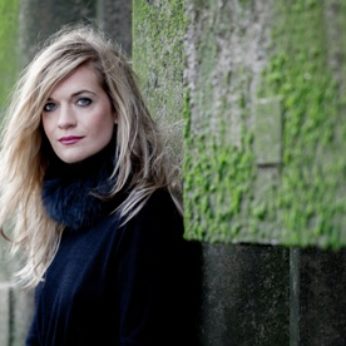Composer: Arnold Schönberg (b. 1874 - d. 1951)
Performance date: 01/07/2014
Venue: St. Brendan’s Church
Composition Year: 1899/1903
Duration: 00:07:51
Recording Engineer: Richard McCullough, RTE
Instrumentation: S-solo, pf
Instrumentation Category:Duo
Artists:
Ruby Hughes -
[mezzo-soprano]
Julius Drake -
[piano]

Schoenberg’s
name is forever associated with the rupture of all musical tradition that took
place in the first decades of the twentieth century; however his early songs
stand right at the beginning of his journey from Brahms and Wagner to the air of another planet. One of the
staging posts along the way was the poetry of Richard Dehmel, in particular Weib und Welt, which had the great
advantage of being banned by the censors and subject to a spectacular trial.
Much later the composer wrote to the poet saying: almost every turning point of my musical development is connected with
a poem by Dehmel. For it was almost always for your tone that I found the new
tone that would then become my own. It was of course Dehmel’s poetry that
was the inspiration for Verklärte Nacht and in that same year he set seven of his
poems that were published as Op.2. This time also coincided with Schoenberg’s
ardent pursuit of Mathilde Zemlinsky.
After
some time in Berlin, Schoenberg moved back to Vienna with his family and began
to form his group of compositional disciples that included both Alban Berg and
Anton Webern. The first new pieces he composed in Vienna were the eight songs
that made up his Op.6, later described by Adorno as probably the composition in which Schoenberg’s music becomes
self-aware. The text of Verlassen echoes
the story behind Mahler’s Lieder eines
fahrenden Gesellen, where the protagonist deserts his beloved without even
a single word of farewell.
Copyright © 2025 West Cork Music. All rights reserved.
Designed and developed by Matrix Internet